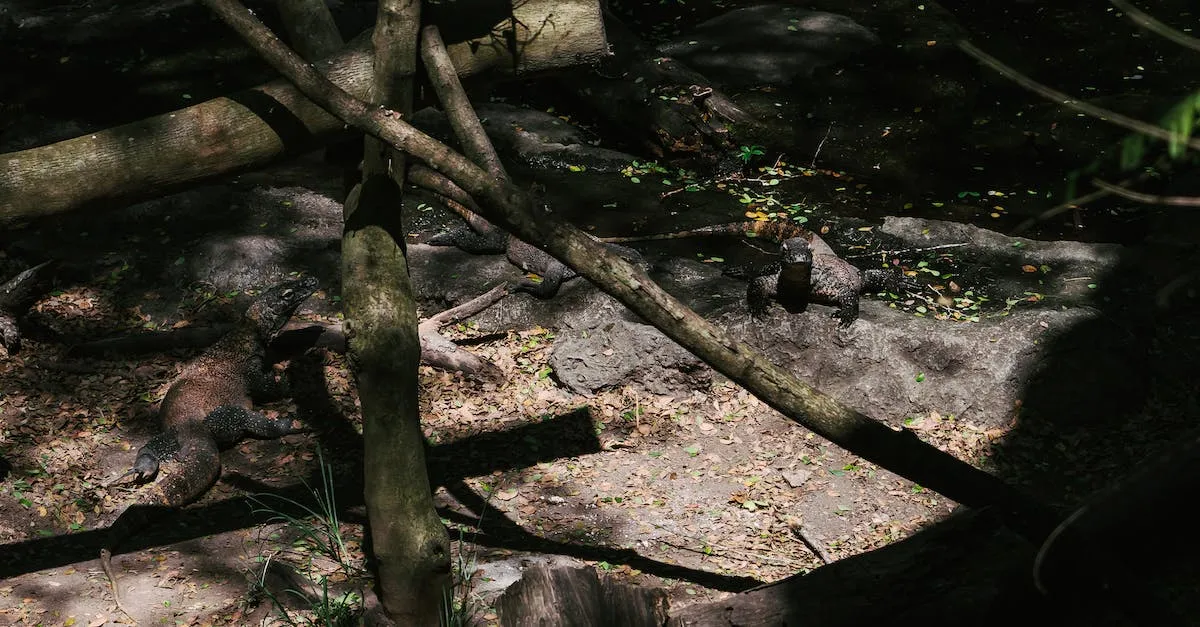Dangerous Animals To Watch Out For In Massachusetts
Massachusetts may seem like an unlikely place to encounter dangerous wildlife. But even in the suburbs and cities, a few wild animal species pose a risk to pets and people.
If you’re short on time, here’s a quick answer to your question: The most dangerous animals in Massachusetts are black bears, coyotes, fisher cats, and gray foxes. Always keep your distance and be aware of the potential risks.
In this comprehensive guide, we’ll cover which animals to steer clear of in Massachusetts and how to stay safe if you have an encounter with them.
Black Bears
Seen across western and central Massachusetts
Black bears are commonly found in the western and central regions of Massachusetts. These majestic creatures can be seen in areas such as the Berkshire Mountains and the Quabbin Reservoir. While they are usually shy and try to avoid human contact, encounters with black bears are not uncommon in these areas.
Can weigh up to 500 pounds
Black bears are known for their impressive size and strength. Adult males can weigh up to 500 pounds, while females typically weigh around 200 pounds. Their large size makes them one of the largest mammals in the state of Massachusetts.
It’s important to keep this in mind when encountering a black bear, as their size alone can be intimidating.
May attack if surprised or defending cubs
While black bears are generally not aggressive towards humans, they may attack if they feel threatened or if they are defending their cubs. It’s crucial to give them their space and not approach them, especially if they have young ones with them.
If you encounter a black bear, it’s best to remain calm, make yourself appear larger by raising your arms, and slowly back away without turning your back on the bear.
For more information on black bears in Massachusetts, you can visit the Massachusetts Division of Fisheries and Wildlife website.
Coyotes
Coyotes are one of the dangerous animals to watch out for in Massachusetts. They are present statewide, even in suburban areas. Despite their elusive nature, they have adapted well to urban environments and can be found in close proximity to human settlements.
Present statewide, even in suburbs
Coyotes are not limited to rural areas or forests; they are now commonly spotted in suburban neighborhoods. They have successfully adapted to living in close proximity to humans and have been known to den under porches, sheds, or even in parks.
It is important for residents of Massachusetts to be aware of their presence, especially when venturing into wooded areas or leaving pets unattended outside.
Travel alone or in small packs
Coyotes are solitary animals, but they are also known to travel in small packs, especially during their breeding season. This behavior can be a cause for concern as they may become more aggressive and territorial during this time.
It is important to be cautious and avoid approaching or provoking coyotes, as they may perceive humans or pets as a threat.
Pose threats to outdoor pets
Coyotes are opportunistic predators and have been known to prey on small domestic animals such as cats and small dogs. It is crucial for pet owners to supervise their pets while they are outside and to keep them on a leash or in a secure area.
Additionally, it is recommended to avoid leaving pet food or garbage outside, as it can attract coyotes to residential areas.
For more information on coyotes and tips on how to coexist with them safely, you can visit the Massachusetts Division of Fisheries and Wildlife website here.
Fisher Cats
Mainly in central and western MA
Fisher cats, also known as fishers, are native to Massachusetts and can be found mainly in central and western parts of the state. These elusive creatures are members of the weasel family and are known for their sleek, dark brown fur.
They prefer dense forests as their habitat, where they can find plenty of cover and prey.
Aggressive hunters of small mammals
Fisher cats are skilled and aggressive hunters, making them a formidable presence in the animal kingdom. They have a varied diet and are known to prey on small mammals such as squirrels, rabbits, and even porcupines.
Despite their small size, fisher cats are fearless and have been known to take down prey much larger than themselves.
Make screeching noises at night
One of the most distinguishing characteristics of fisher cats is the eerie screeching noise they make, especially at night. This can be quite alarming if you happen to hear it for the first time. The sound is often described as a combination of a human scream and a woman crying, which can send shivers down your spine.
For more information on fisher cats and their behavior, you can visit the Massachusetts Division of Fisheries and Wildlife website. They provide valuable resources and guidelines on how to coexist safely with these fascinating creatures.
Gray Foxes
Found across the state
Gray foxes are a common sight in Massachusetts, and can be found throughout the state. These small to medium-sized animals have a distinctive gray fur coat with reddish hues, making them easily identifiable.
They are known for their adaptability and can be found in a variety of habitats, including forests, fields, and even urban areas.
Shy but will attack if threatened
While gray foxes are generally shy and elusive creatures, they have been known to attack if they feel threatened or cornered. It is important to give them their space and avoid approaching them, especially if they are displaying signs of aggression such as growling or baring their teeth.
If you encounter a gray fox in the wild, it is best to admire them from a distance and give them the opportunity to retreat.
Can potentially carry rabies
Like many other mammals, gray foxes can potentially carry rabies. Rabies is a viral disease that affects the nervous system and can be transmitted to humans through bites or scratches. It is important to avoid contact with any wild animals, including gray foxes, and to ensure that your pets are up to date on their rabies vaccinations.
If you suspect a gray fox or any other animal may be rabid, contact your local animal control authorities for assistance.
For more information on gray foxes and other wildlife in Massachusetts, you can visit the official website of the Massachusetts Department of Fish and Game.
Staying Safe
When it comes to encountering dangerous animals in Massachusetts, safety should always be your top priority. By following a few simple guidelines, you can greatly reduce the risk of harm to yourself and others. Here are some tips to help you stay safe:
Keep your distance and don’t approach
One of the most important things to remember when encountering a potentially dangerous animal is to keep your distance. Whether it’s a bear, coyote, or venomous snake, it’s crucial to give them space and not approach them.
Wild animals can be unpredictable, and attempting to get closer could put you in harm’s way. Instead, admire them from a safe distance and appreciate their beauty and uniqueness from afar.
Don’t leave pet food outside
Leaving pet food outside can attract wildlife, such as raccoons and skunks, which can pose a threat to you and your pets. These animals may become habituated to human presence and lose their fear, increasing the chances of conflicts.
To prevent unwanted encounters, make sure to bring pet food inside after your pets have finished eating. This simple step can help deter wildlife from coming into your yard and reduce the risk of potential conflicts.
Report aggressive animals to wildlife authorities
If you encounter an aggressive animal in Massachusetts, it is essential to report it to the appropriate wildlife authorities. This information can help them track and monitor potentially dangerous animals and take necessary action to ensure public safety.
By reporting aggressive animals, you are not only protecting yourself but also helping to protect others from potential harm.
For more information on staying safe around dangerous animals in Massachusetts, you can visit the official website of the Massachusetts Division of Fisheries and Wildlife at https://www.mass.gov/orgs/division-of-fisheries-and-wildlife.
They provide valuable resources and guidelines to help residents and visitors stay safe in wildlife-rich areas.
Conclusion
While Massachusetts seems far from wildlife danger zones, a few wild animals like bears, coyotes, fisher cats, and foxes can pose local threats. Remaining alert and informed about their behaviors will allow you to steer clear of potentially hazardous encounters.
Avoid surprising these animals, getting between mothers and cubs, and leaving tempting food sources available. Maintaining your distance and reporting aggressive animals to the authorities can also help minimize risky interactions.
With proper awareness and caution, we can safely coexist with the wild creatures that share our state. Knowing which animals to watch for and how to react will help ensure both people and animals stay out of harm’s way.








